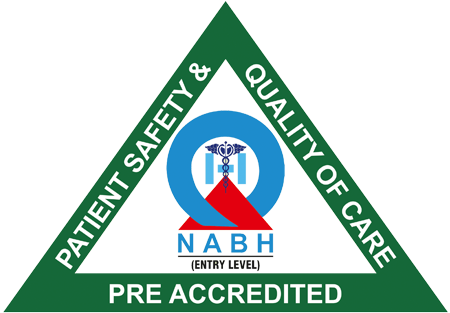Pregnancy is a life-transforming experience, filled with excitement, hope, and countless questions. However, as miraculous as it is, it can sometimes come with challenges. That’s why understanding pregnancy complications is vital—not to worry you but to empower you with knowledge that keeps you and your baby safe.
The reassuring truth is that most pregnancies progress without any significant issues. Yet, in some cases, risks do arise. Being aware of potential complications, their causes, and how to manage them can make all the difference.
Let’s explore the common complications, their causes, and effective ways to manage them.
Common Pregnancy Complications
1. Gestational Diabetes
What it is & why it occurs?
Gestational diabetes is a type of diabetes that happens during pregnancy when your body struggles to regulate blood sugar levels effectively. It’s often linked to hormonal changes that affect how insulin works.
Risk factors
- A personal or family history of diabetes
- Being overweight before pregnancy
- Being over 25 years of age
- Previous pregnancies with large babies
Symptoms
Gestational diabetes may not have any noticeable symptoms, but some women experience excessive thirst, frequent urination, and fatigue.
How it’s diagnosed?
Routine glucose screenings between 24–28 weeks of pregnancy help catch gestational diabetes.
Treatment and management
Most cases can be managed through:
- A tailored diet plan
- Regular physical activity (as approved by your doctor)
- Monitoring blood sugar levels.
Some women may need insulin or medication to control their levels.
2. High Blood Pressure & Preeclampsia
The impact of hypertension during pregnancy
High blood pressure can limit blood flow to the placenta, posing risks for the baby, such as low birth weight or preterm delivery.
Symptoms of preeclampsia
Preeclampsia involves high blood pressure alongside signs like severe headaches, swelling in the hands and face, blurred vision, or sudden weight gain.
Potential risks for mother and baby
Untreated preeclampsia may lead to severe complications like eclampsia (seizures) or harm to organs like the liver and kidneys.
Prevention & management
Regular prenatal visits help monitor and manage high blood pressure. Your doctor may recommend:
- A balanced diet low in salt
- Medications to manage hypertension
- Rest and, in severe cases, early delivery.
3. Miscarriage & Recurrent Pregnancy Loss
Definition and causes
A miscarriage, unfortunately, occurs in about 10–20% of known pregnancies, often due to chromosomal abnormalities. Recurrent pregnancy loss (RPL) is defined as having two or more consecutive miscarriages.
Early signs of miscarriage
Spotting, cramping, and back pain could be warning signs.
When to see a doctor?
If you notice heavy bleeding, severe cramping, or a loss of pregnancy symptoms, contact your healthcare provider immediately.
Ways to reduce risk
Taking folic acid supplements, controlling underlying conditions like diabetes, and avoiding harmful substances can help.
4. Preterm Labour
Causes of premature birth
Factors like infections, carrying multiples, or previous preterm births can increase the risk.
Signs and symptoms
- Regular contractions before 37 weeks
- Lower back pain
- Fluid leakage or spotting
Preventive measures and treatments
Your doctor might recommend bed rest, medications to delay labour, or hospital monitoring if you’re at risk.
5. Placenta Previa & Placental Abruption
Differences between the two
Placenta previa occurs when the placenta covers the cervix, while placental abruption involves premature separation of the placenta from the uterine wall.
Causes and symptoms
Both conditions may cause bleeding, abdominal pain, or contractions.
Potential risks
Without proper care, these complications could harm the baby’s oxygen supply or lead to preterm birth.
When hospitalization is needed?
Hospitalization may be necessary for close monitoring or, in severe cases, early delivery.
6. Ectopic Pregnancy
Definition and why it happens?
An ectopic pregnancy occurs when a fertilized egg implants outside the uterus, often in the fallopian tube.
Symptoms and emergency signs
Sharp pelvic pain, dizziness, or heavy bleeding are signs to act immediately.
Treatment options
Treatment typically involves medication to stop the pregnancy or, in some cases, surgery.
7. Infections During Pregnancy
Common infections
- Urinary Tract Infections (UTIs)
- Cytomegalovirus (CMV)
- Toxoplasmosis (caused by contact with cat faeces or raw meat)
Their impact on pregnancy
Untreated infections can lead to preterm labour, low birth weight, or even more severe complications.
Prevention and treatment
Good hygiene, staying up-to-date on vaccinations, and regular checkups can help. Antibiotics or antiviral medications may be prescribed when necessary.
8. Anaemia in Pregnancy
Causes of anaemia during pregnancy
Your body produces extra blood during pregnancy, but if iron or folate levels are too low, anaemia sets in.
Symptoms to watch for
Fatigue, dizziness, pale skin, and shortness of breath.
Importance of iron-rich diet and supplements
Focus on iron-rich foods like spinach and red meat, and take supplements as instructed.
9. Fetal Growth Restriction (FGR)
What is FGR?
Fetal Growth Restriction occurs when a baby doesn’t grow as expected in the womb.
Causes and risk factors
Smoking, high blood pressure, or placental issues can contribute.
How does it affect the baby?
It may lead to low birth weight or complications during delivery.
Diagnosis and management
Your doctor will monitor FGR through ultrasounds and may recommend bed rest, nutrition changes, or early delivery.
10. Depression & Anxiety During Pregnancy
Mental health challenges in pregnancy
Pregnancy is a huge life change, and it’s normal to experience mood swings.
Signs and symptoms
Feelings of sadness, irritability, or overwhelm lasting more than two weeks should not be ignored.
Importance of seeking support
Talking to a therapist, leaning on loved ones, and consulting your doctor can help you find the right treatment.
Experience World-Class Maternity Care! Your pregnancy journey deserves expert care and a safe environment. Choose one of the best hospitals in East Marredpally for advanced maternity services, experienced specialists, and 24/7 support, Call us today.
Rare But Serious Pregnancy Complications
Some rare complications during pregnancy and labour include molar pregnancy, amniotic fluid embolism, HELLP Syndrome, and uterine rupture.
Molar pregnancy occurs when abnormal tissue grows in the placenta instead of a healthy fetus, which can lead to serious risks if not treated promptly. Amniotic fluid embolism is a life-threatening condition where amniotic fluid or fetal material enters the mother’s bloodstream, potentially causing severe reactions like respiratory distress and organ failure.
HELLP Syndrome, a variant of preeclampsia, stands for Hemolysis, Elevated Liver enzymes, and Low Platelet count; it can lead to complications such as liver damage and blood clotting problems. Uterine rupture, which happens during labour, involves the tearing of the uterine wall, posing risks to both the mother and baby, often requiring immediate medical intervention.
These conditions, though rare, require swift diagnosis and treatment to ensure the safety of the mother and baby.
Who Is at Higher Risk for Pregnancy Complications?
Factors such as age, pre-existing medical conditions, and lifestyle choices can significantly influence pregnancy risks. Women under the age of 18 may face challenges due to their bodies not being fully developed for pregnancy, while those over 35 are at higher risk for complications such as gestational diabetes, preeclampsia, or chromosomal abnormalities in the baby.
Pre-existing conditions like diabetes or hypertension can add complexity to pregnancy management and may require specialized medical attention to ensure the health of both mother and baby. Lifestyle choices like smoking and substance use can further exacerbate risks, leading to issues such as low birth weight, premature delivery, or developmental problems for the baby.
However, with early and consistent prenatal care, healthcare providers can monitor and manage these risks effectively. Regular check-ups, proper nutrition, avoiding harmful substances, and adherence to medical advice are all essential steps to ensure a safer and healthier pregnancy.
Your Trusted Partner in Pregnancy Care – Shenoy Hospital! With cutting-edge maternity facilities, expert obstetricians, and compassionate care, Shenoy Hospital ensures a smooth and safe pregnancy journey. Schedule a Consultation Today!
How to Prevent Pregnancy Complications?
Prevention starts with simple but powerful steps:
- Attend all prenatal checkups.
- Eat a balanced diet rich in fruits, vegetables, and lean proteins.
- Stay active safely with prenatal exercises.
- Manage chronic conditions under the supervision of your doctor.
- Avoid alcohol, tobacco, and drugs.
When to Call a Doctor?
Seek immediate medical attention if you notice any warning signs during your pregnancy, as prompt care can make a significant difference. Warning signs to watch for include heavy bleeding, which could indicate a serious complication, sudden or unusual swelling in areas like your hands, feet, or face, severe or persistent abdominal pain that doesn’t go away, or reduced fetal movement, which may signal a concern with your baby’s well-being.
It’s essential to stay alert to these symptoms and not delay seeking help if something feels wrong. Always keep your doctor’s contact information readily accessible for emergencies, and don’t hesitate to reach out for advice or assistance if needed. Your health and your baby’s health are the top priority.
Looking for the Best Maternity Care? At our maternity care centre in Secunderabad, we provide personalized prenatal care, state-of-the-art facilities, and expert guidance for a smooth pregnancy. Book an Appointment Now at 040-41519999!”
FAQs
1. Can stress cause pregnancy complications?
Yes, chronic stress may increase risks like preterm labour. Relaxation techniques and support can help.
2. What are the first signs of pregnancy complications?
Symptoms like severe cramps, bleeding, or dizziness can be early indicators.
3. How can I ensure a smooth pregnancy?
Eat healthily, stay active, attend prenatal care visits, and manage stress.
4. What foods help reduce pregnancy risks?
Focus on leafy greens, lean proteins, whole grains, and foods rich in iron and folic acid.
5. How does pregnancy affect my existing health conditions?
Conditions like diabetes or hypertension may need closer monitoring and adjustments to treatment plans.
Conclusion
Pregnancy is a beautiful experience, and with proper care and knowledge, most pregnancies progress smoothly. Always consult with your doctor for personalized advice and stay proactive about your health. With the right approach, you’ll be well-prepared to welcome your little one into the world.
Share:



